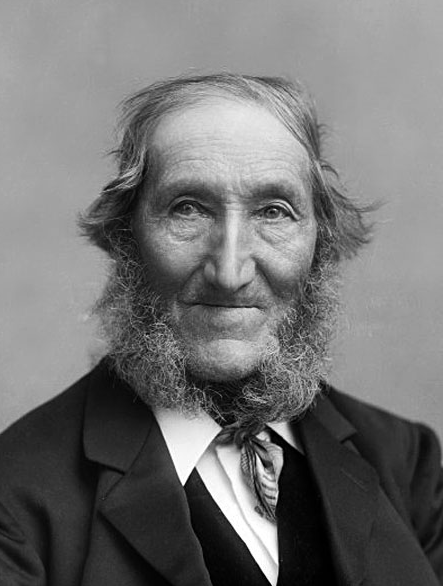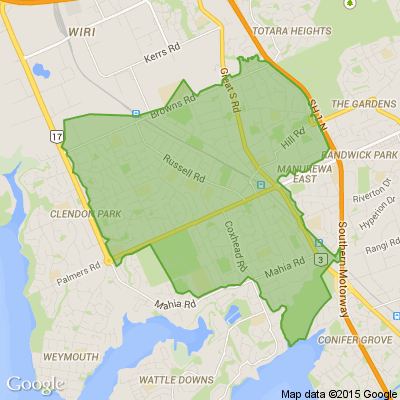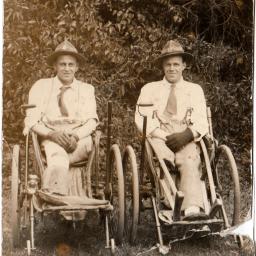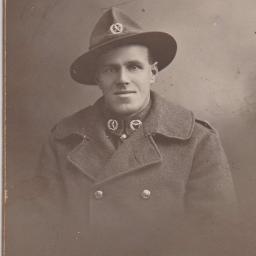After Armistice: dealing with the effects of war
As we commemorate the 101st Armistice Day, it's timely that we reflect on the aftermath of the First World War; not only the massive scale of loss, but also the ongoing suffering experienced by those who returned from the first industrialised war.
Arriving in back in Wellington, Colonel Evans pointedly reminded the soldiers of those left behind: “Remember,” he said, “When you go ashore you are not heroes. The heroes lie in France”. Having lost their comrades in the thousands, the soldiers hardly needed to be reminded of their 'luck' in making it through. Yet for those who survived, the physical and mental toll of the war was immense and for many unspeakable. Each service person confronted the psychological and emotional impact of a war unprecedented in its violence in their own personal way.
One soldier who suffered through his war service was Private Ivor Norman (Norm) Fleet 31249. A bushman who enlisted in Taumarunui, Fleet fought with the Wellington Infantry Regiment and received gunshot wounds to both legs during a clean-up operation at Bellevue Spur on 22 October 1917. His right leg was later amputated and he eventually returned to New Zealand where simply carried on with his life, marrying Elsie Petley in 1928, building his own house and forging a long and productive career. Norm rarely spoke of the war and relatives only recall seeing him in tears as his nephews left for the Second World War; a small clue to the pain that returned servicemen held inside. Like Norm, millions suffered silently in the aftermath. Today we honour their service and acknowledge the immeasurable suffering that came from it.
Lest we forget.
Find out more about Armistice Day and the Museum's collections here. www.aucklandmuseum.com...
What's your favourite recipe for gooseberry?
Love gooseberries? Share your favourite way to enjoy them. We're looking for our readers' favourite family recipes for this delicious crop. Send yours to mailbox@nzgardener.co.nz, and if we use it in the magazine, you will receive a free copy of our December 2024 issue.

Six tips for improving security around your home
1) Improve outdoor lighting
Ensure that streets, driveways, and front yards are well-lit. Motion-sensor lights around homes deter trespassers by reducing hiding spots and illuminating their movements.
2) Trim your trees
Overgrown shrubs and trees provide cover for intruders. Keeping them well-trimmed around windows and doors improves visibility and reduces potential hiding spots.
3) Secure Entry Points
Ensure doors, windows, and gates are always closed when you are away from the house. Upgrade to more secure locks, deadbolts, or even smart locks for added protection.
4) Add a security camera
Place security cameras in the main entry points to your home. Doorbell cameras are also relatively cheap and a great way to keep track of who is visiting your home when you aren't there.
5) Start a Neighborhood Watch Program
You could reach out to members on Neighbourly to form a group of neighbors who can regularly keep an eye out for suspicious activity and report it. You could also check with Neighbourhood Support to see what is existing in your area.
6) Introduce yourself to your neighbours
The closer you are to your neighbors, the more likely they’ll notice when something unusual or suspicious is happening around your property
Feel free to share anything that you do around your area to deter crime.

What workplace change would you like to see most?
This coming Monday is Labour Day in New Zealand. This public holiday marks when the eight-hour workday and 48-hour workweek became law in 1899. The idea started with Samuel Parnell, a carpenter in Wellington, who in 1840 refused to work more than eight hours a day. Since skilled workers were in short supply, his employer had to agree.
As more skilled workers arrived, employers tried to change working conditions, but Parnell and others kept pushing for better rights. In 1890, Parnell led a Labour Day parade of 1,500 people to promote the eight-hour day. He passed away shortly after, and nine years later, Labour Day became an official public holiday.
Do you feel that we have reached the ideal in working environments yet? What rights are you passionate about relating to employment? Share your thoughts!










 Loading…
Loading…





